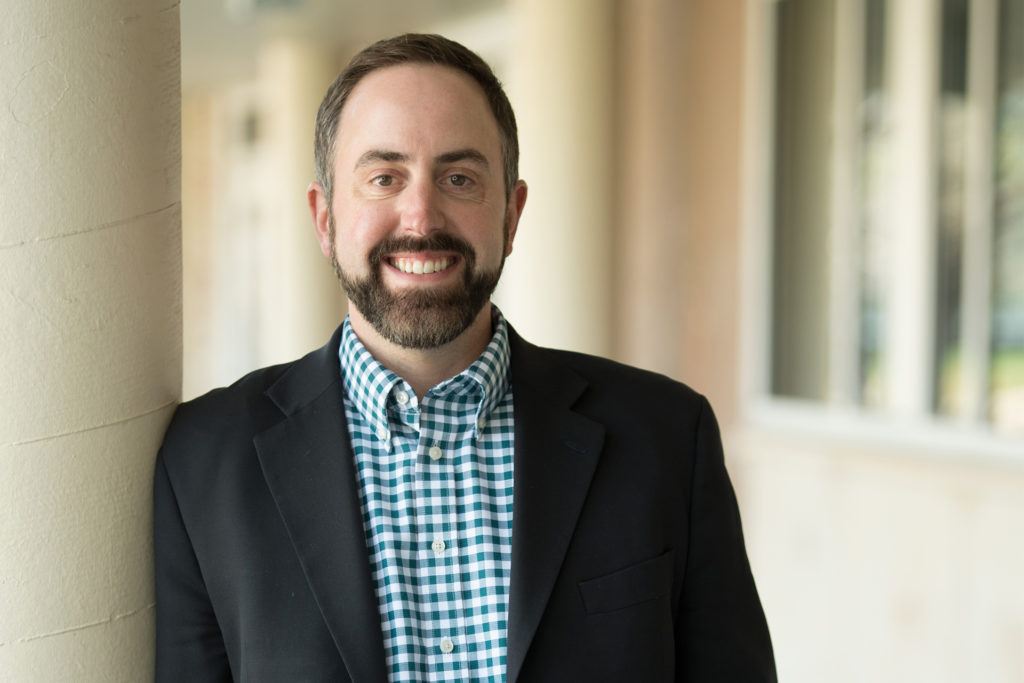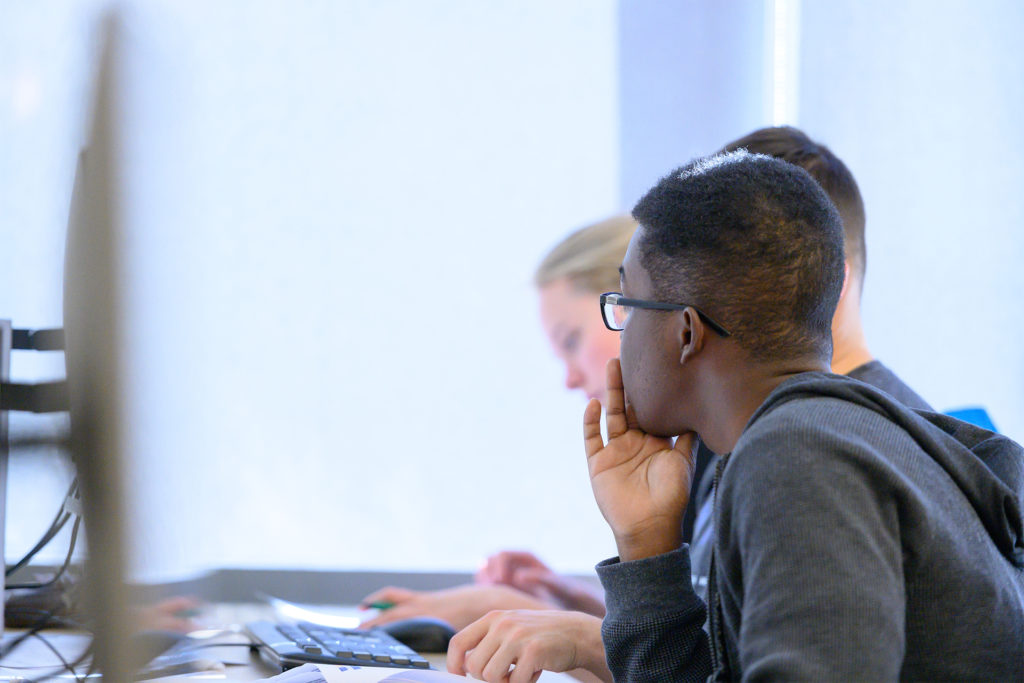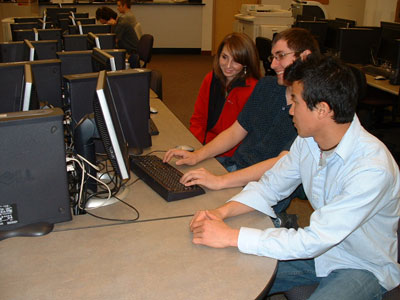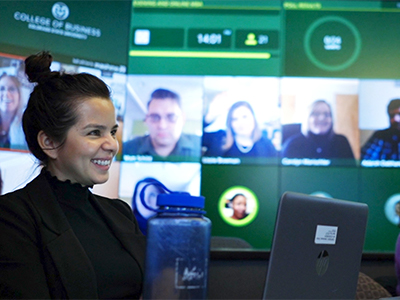
In his first six months as the new director of Academic Computing & Networking Services and Telecommunications, Brandon Bernier said he has been impressed with the technology as well as the culture at Colorado State University.
“When I applied for the job, I was amazed at how well people worked together and how collaborative the environment was,” he said. “From the outside looking in, I thought it was a great institution with a unique culture. I didn’t realize how special it really was until I set foot on campus.”
For Bernier, an information technology veteran who has made stops at the University of Wisconsin-Madison and Oakland University, having a collaborative environment is a key component in helping to meet the growing technology-driven demands at CSU.
In his new role at ACNS and Telecommunications, Bernier oversees approximately 80 full-time staff members and 40 student employees charged with supporting campus networks, academic technology, central computing infrastructure, IT security and end-user computing.
Since arriving in Fort Collins in November, Bernier has been active on campus, engaging different groups and learning how ACNS and Telecommunications can better support students, faculty and staff.
“We want to make sure that we have a seamless technology experience across campus,” Bernier said. “We want everyone to have an amazing experience and to help them think of how they will be able to use technology in new and different ways.”
Championing a campus-first focus

In a given month, CSU’s network handles 129,000 connections from online devices, ranging from classroom computers to personal laptops and smartphones.
And it’s only going to continue to grow.
To help meet the needs of CSU’s 30,000-plus students and more than 7,000 faculty and staff members, Bernier champions a philosophy that focuses on strategic thinking, data-driven decision making, employee engagement and customer service.
“It’s important that we take a campus-first focus as opposed to a technology-first focus,” Bernier said. “You take a campus-first approach, and then you apply the right technology and services.”
It’s a philosophy that Bernier cultivated while serving as director of user services at the University of Wisconsin-Madison. There, he said, he helped take the IT team from a reactive model to a proactive approach that engaged the campus community.
For his efforts, Bernier was the recipient of the EDUCAUSE 2015 Rising Star Award, a prestigious honor in higher education IT. He received the award for his collaborative leadership in establishing professional development opportunities and for developing effective teams and partnerships to advance technology.
Patrick J. Burns, CSU’s vice president for information technology and dean of libraries, said Bernier’s strong leadership and strategic planning skills made him the ideal candidate to lead ACNS and Telecommunications.
“It’s really about relationships, and Brandon has the vision to be a great leader,” Burns said. “He’s already showing great promise in delivering better services by making our supply of capacity equal to what we do.”
In the past decade, Bernier said he has worked to institute customer service skillsets as well as training and development opportunities for his staff, so they’re going the extra mile.
For Bernier, it’s about taking a collaborative approach across campus that provides students, faculty and staff with the right technology and services for today and into the future.
He said establishing proactive, long-lasting relationships is critical to helping understand what students, faculty and staff need.
“When we think about technology in our personal lives, sometimes it can be a frustrating experience,” Bernier said. “We want to show our campus community that you can absolutely have a wonderful experience working with technology and that it can add a lot of value.”
Adapting to change
When Bernier started in higher education, he thought he would be staying for a year or two. But it quickly turned into his life’s passion.
“The impact technology has on our campuses is really profound,” he said. “There’s an excitement in technology and the new things that it can create for society.”
As an undergraduate student at Michigan State University studying telecommunications, Bernier experienced that excitement firsthand during the internet boom in the late 1990s and early 2000s as he saw how it was changing society.


That technology has quickly changed throughout Bernier’s career, with the growth in wireless networking and mobile devices.
“Students are coming to campus now with such increased technology needs for their in-class experience as well as their out-of-classroom experience,” he said.
Bernier said future campus needs might include virtual reality and augmented reality in the classroom, which requires high-speed networking. He and his team are regularly researching the latest trends and communicating with students and faculty to stay ahead of the curve.
While the technology may change, one thing is constant for Bernier. In the end, he said it’s about helping students graduate and pursue their careers and helping faculty teach and make discoveries through their research.
“One of the things that has been a foundational principle for me is helping to teach people how to learn new technology,” Bernier said. “It’s not necessarily about the technology itself, but how you continue to adapt to it.”
Since moving to Fort Collins, Bernier has been undergoing his own form of adaptation — adjusting to life in Colorado.
As an avid fan of the outdoors, he said he has spent a fair amount of time in the foothills and the mountains. He also said it doesn’t hurt that the winters in Colorado are better than in Wisconsin, adding that his family is excited to move here soon.
“It’s amazing just how nice the people are here, from the faculty, students and staff on campus to the broader community in Fort Collins,” he said. “It’s been a real pleasure to be a part of this.”